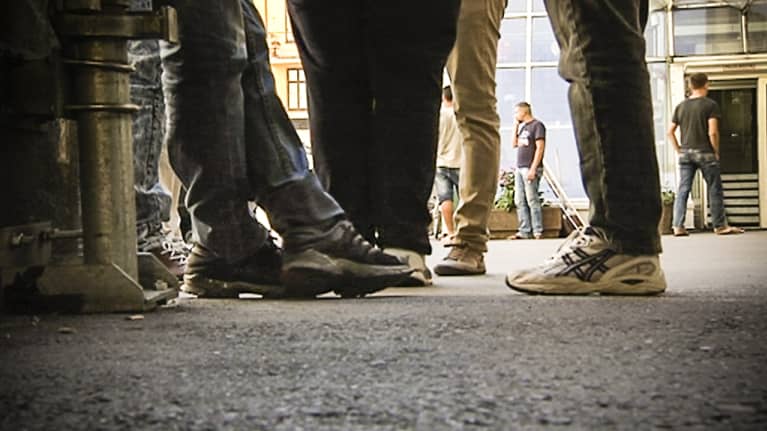Finland is bracing for an influx of some 15,000 asylum seekers this year, according to the Interior Ministry. But with health care professionals hard to find, reception centres are struggling to provide mental health care for those who are already in the country.
About a week ago, Mohanad arrived from Iraq with not just physical scars but psychological ones, too - from torture and the breakup of his family.
“ISIS fighters locked me in a confined space for four or five months,” he told Yle. “They tried to extort money from me and find out where my brother was. They cut me on the arm and whenever I started to fall sleep, they dumped a bucket of water on my head.”
One third may be torture survivors
Every day, some 20 asylum seekers like Mohanad arrive at the Kaarlenkatu reception centre in Helsinki’s Punavuori district. Officials estimate that a third of them were tortured. But only a fraction get the mental health care they need, partly because the facility is understaffed.
“At the moment, we can only treat the most acute cases of illness. Fortunately we’ve now gotten permission to recruit more staff, says the centre’s director, Leena Markkanen. However she says it’s difficult to find qualified health care professionals. There are few prospective employees because the centre is only able to hire staff on short-term contracts, rather than permanent jobs which are available elsewhere.
Long waiting list for treatment
Refugees who have been granted asylum and assigned places in municipalities, they may be eligible for mental health treatment through facilities such as the Centre for Torture Survivors in Finland, run by the Helsinki Deaconess Institute.
Annele Lindeqvist, a psychotherapist at the centre, says that her organisation is experiencing a surge in demand for its treatment services.
“If someone makes contact now, they might be able to begin treatment next year. There’s now a waiting list of 25, which is half again as much as normal,” she says.
Securing the right help for people like Mohanad is vital, stresses Markkanen. Once they're in good physical and mental health and granted asylum, she says, they'll be able to start learning the language, apply to schools and look for jobs.
